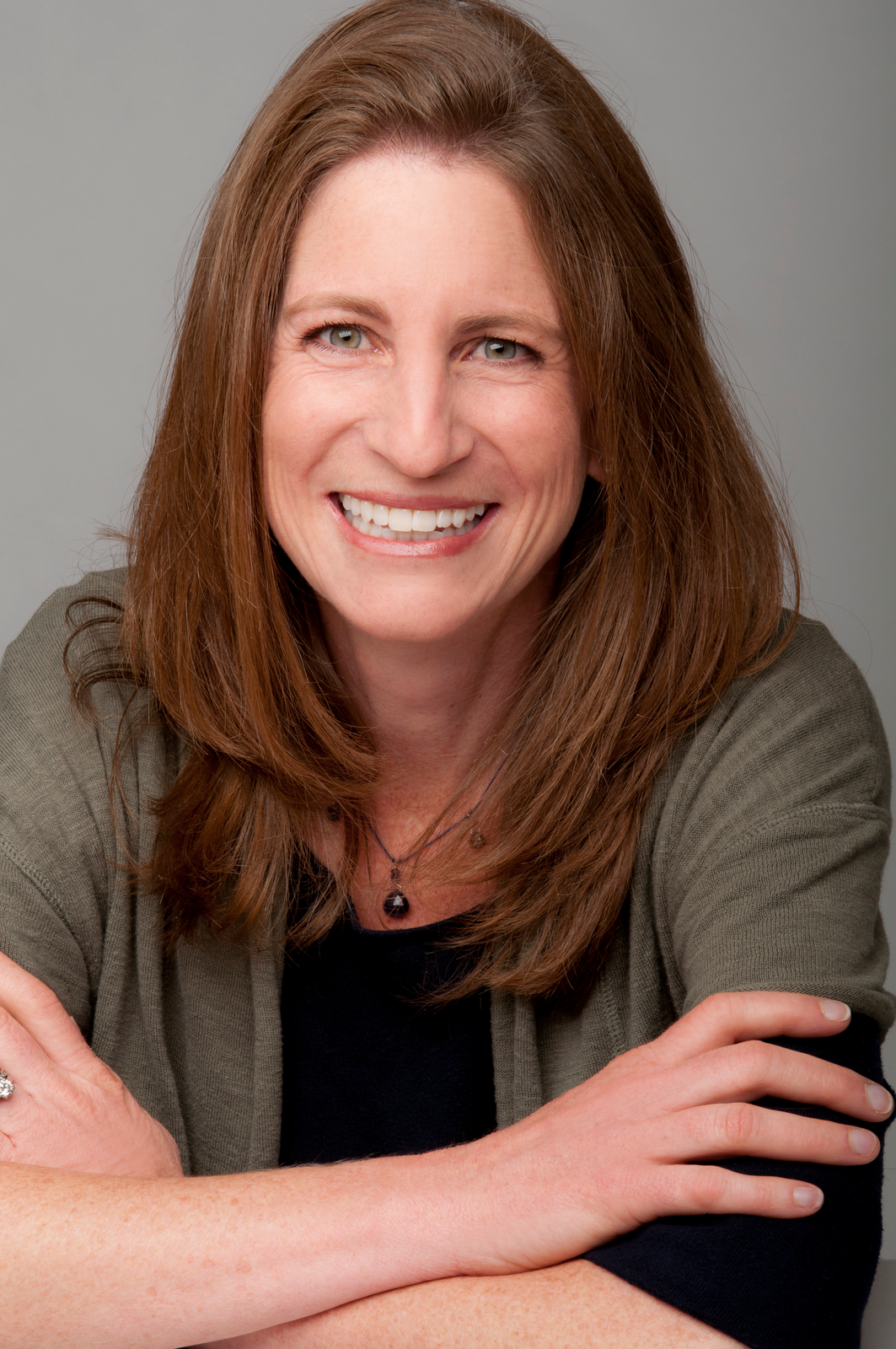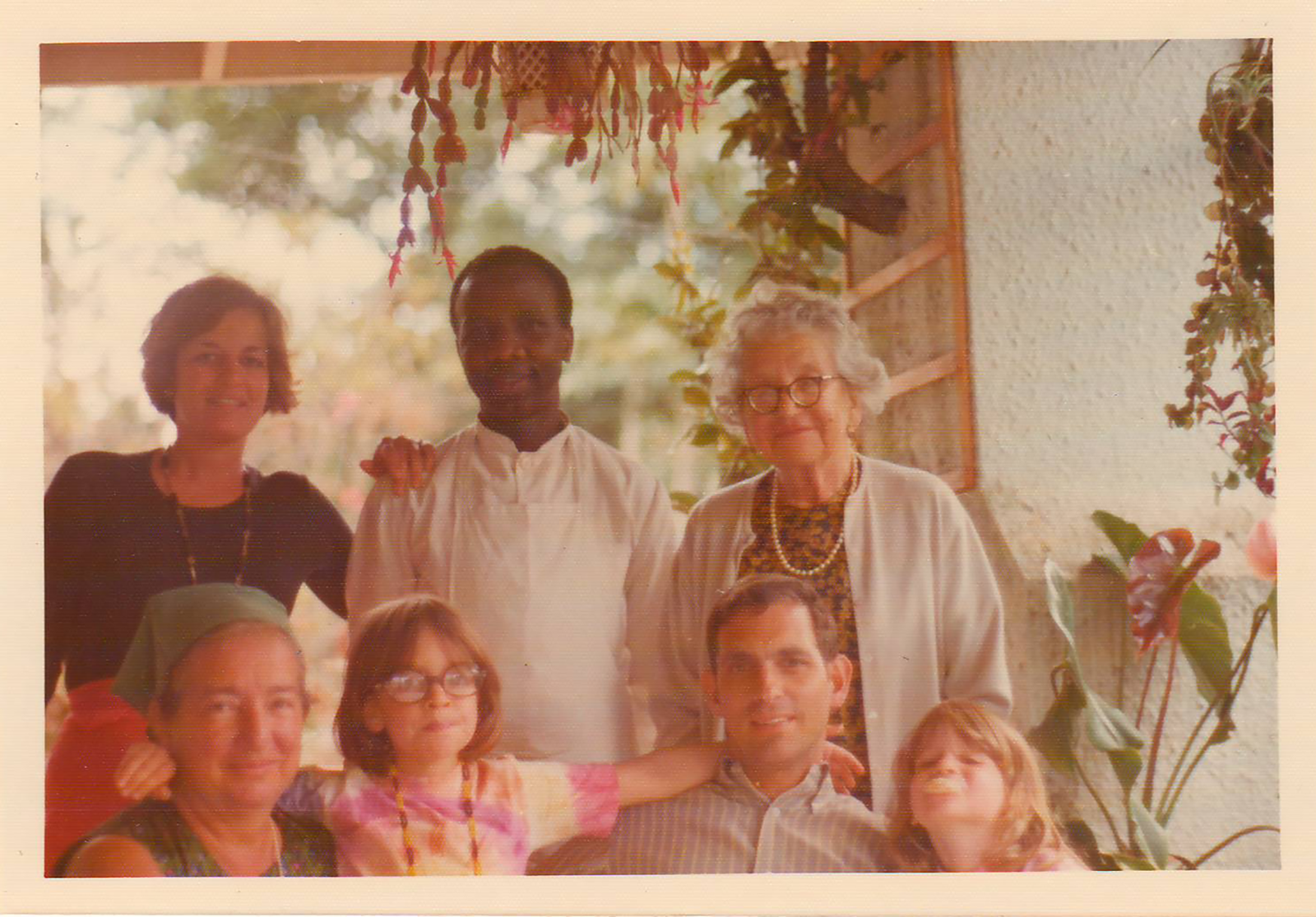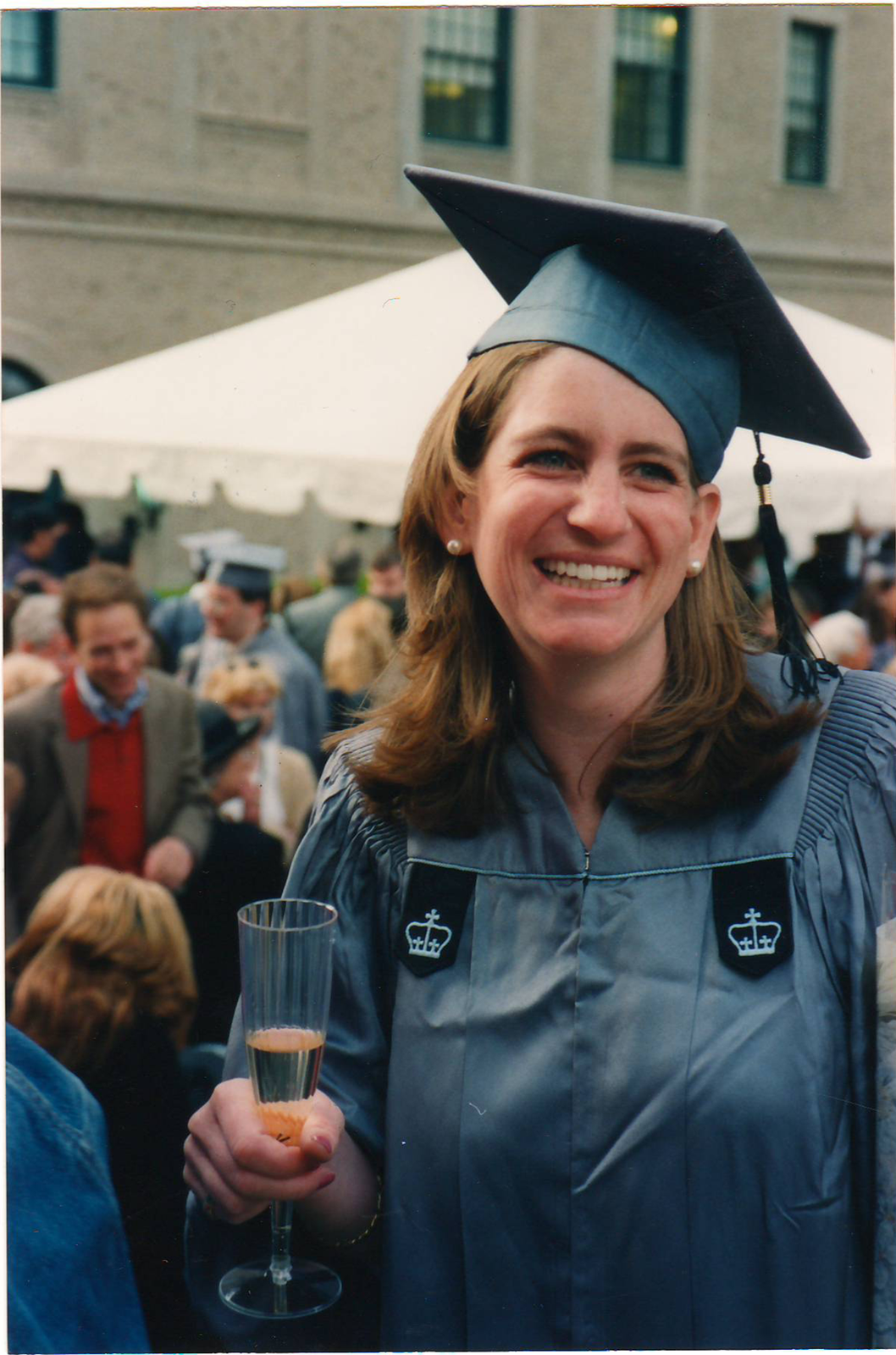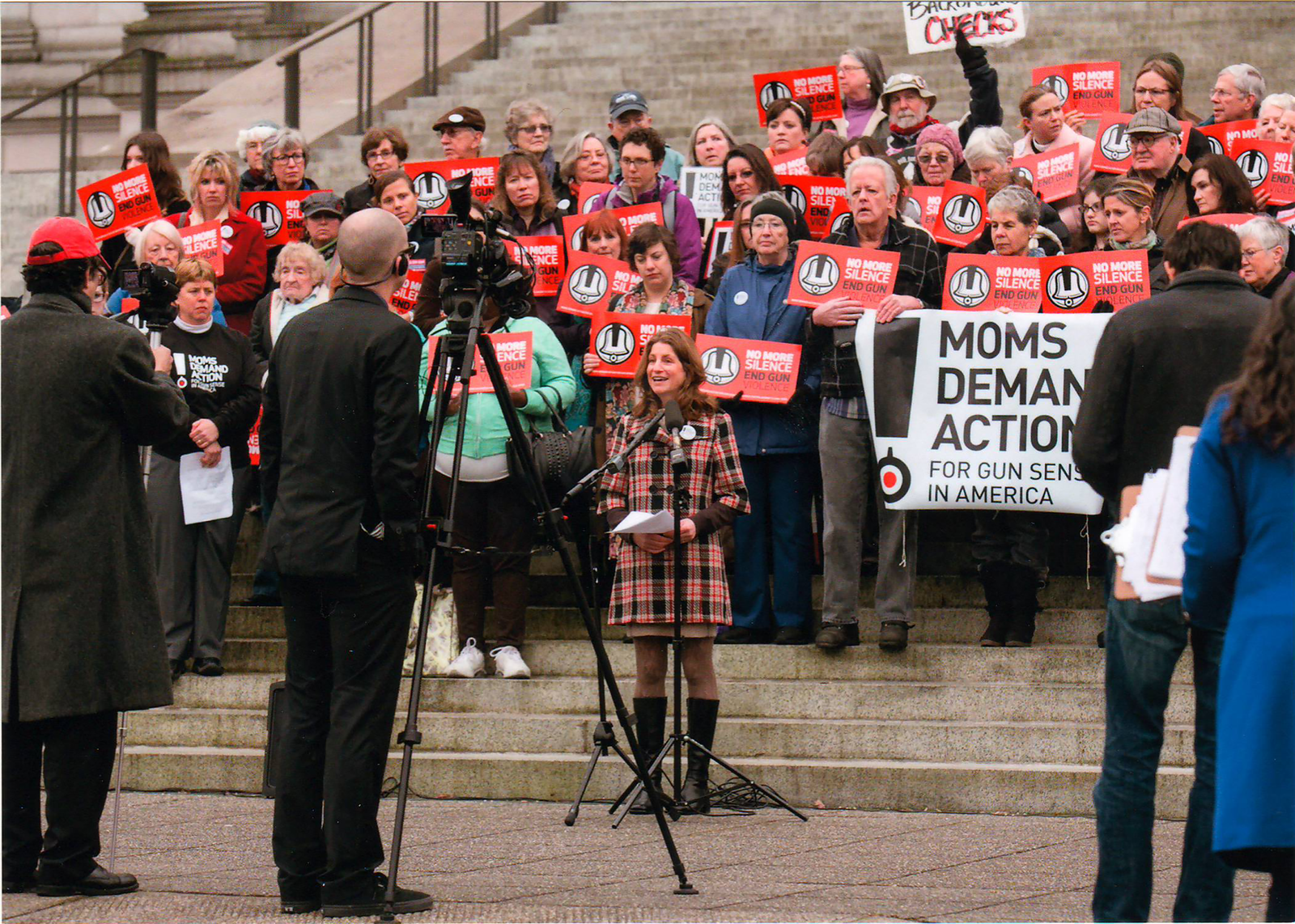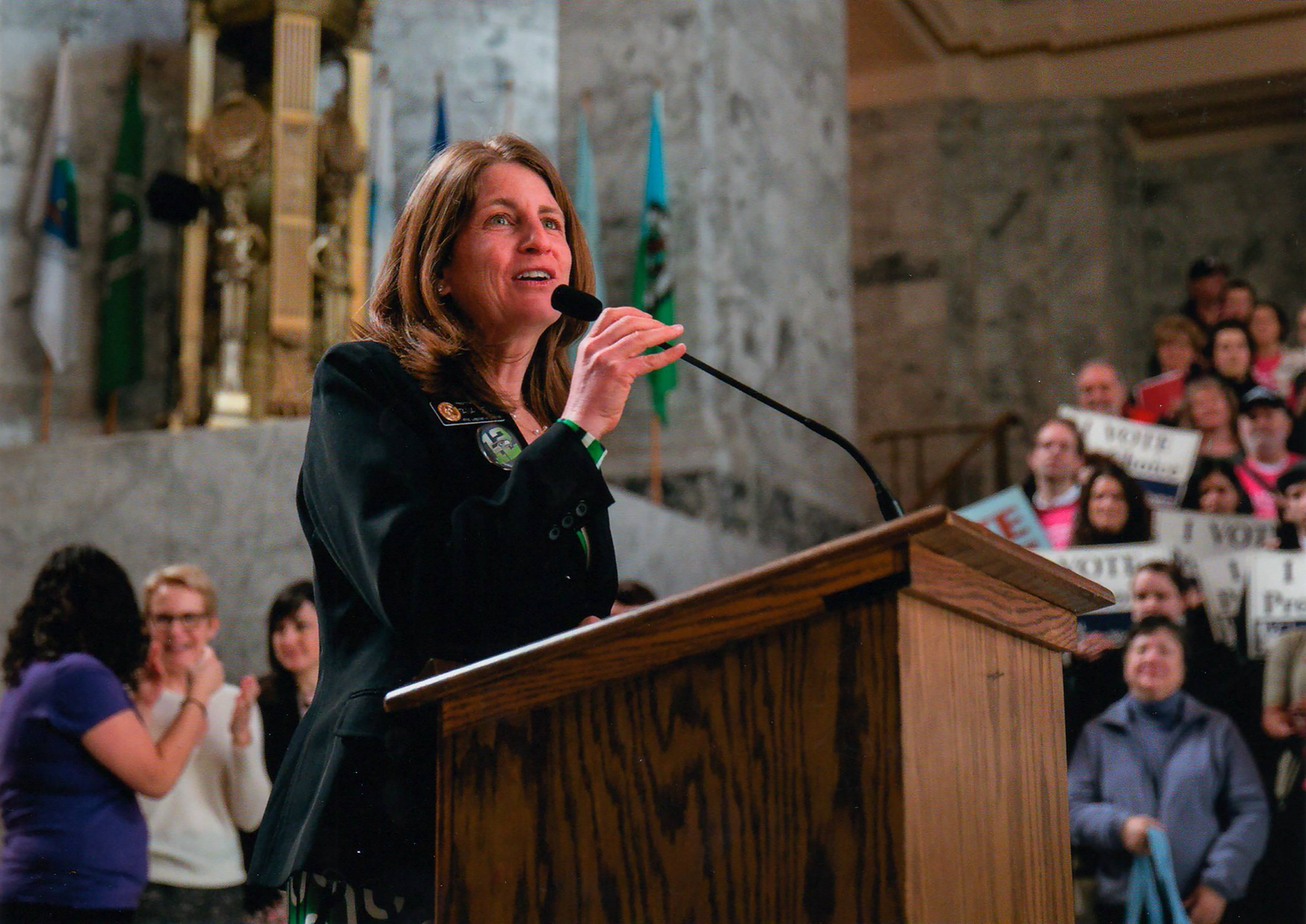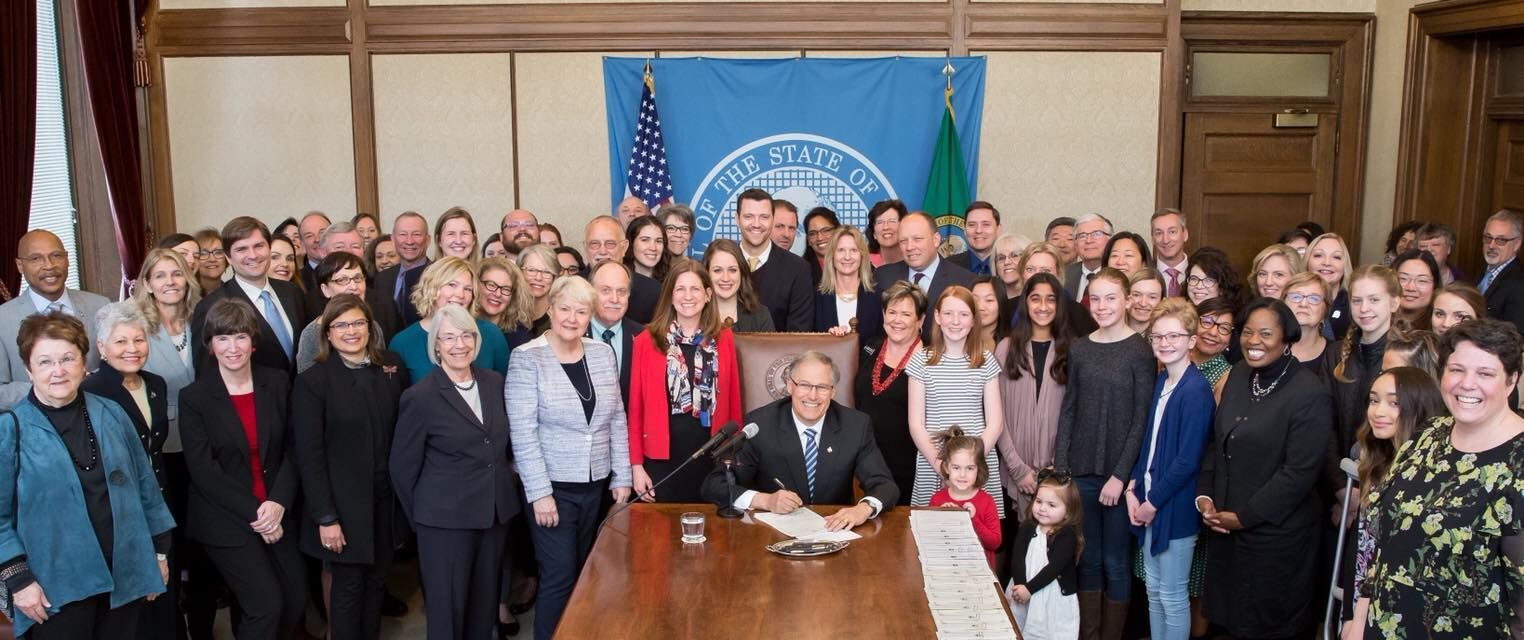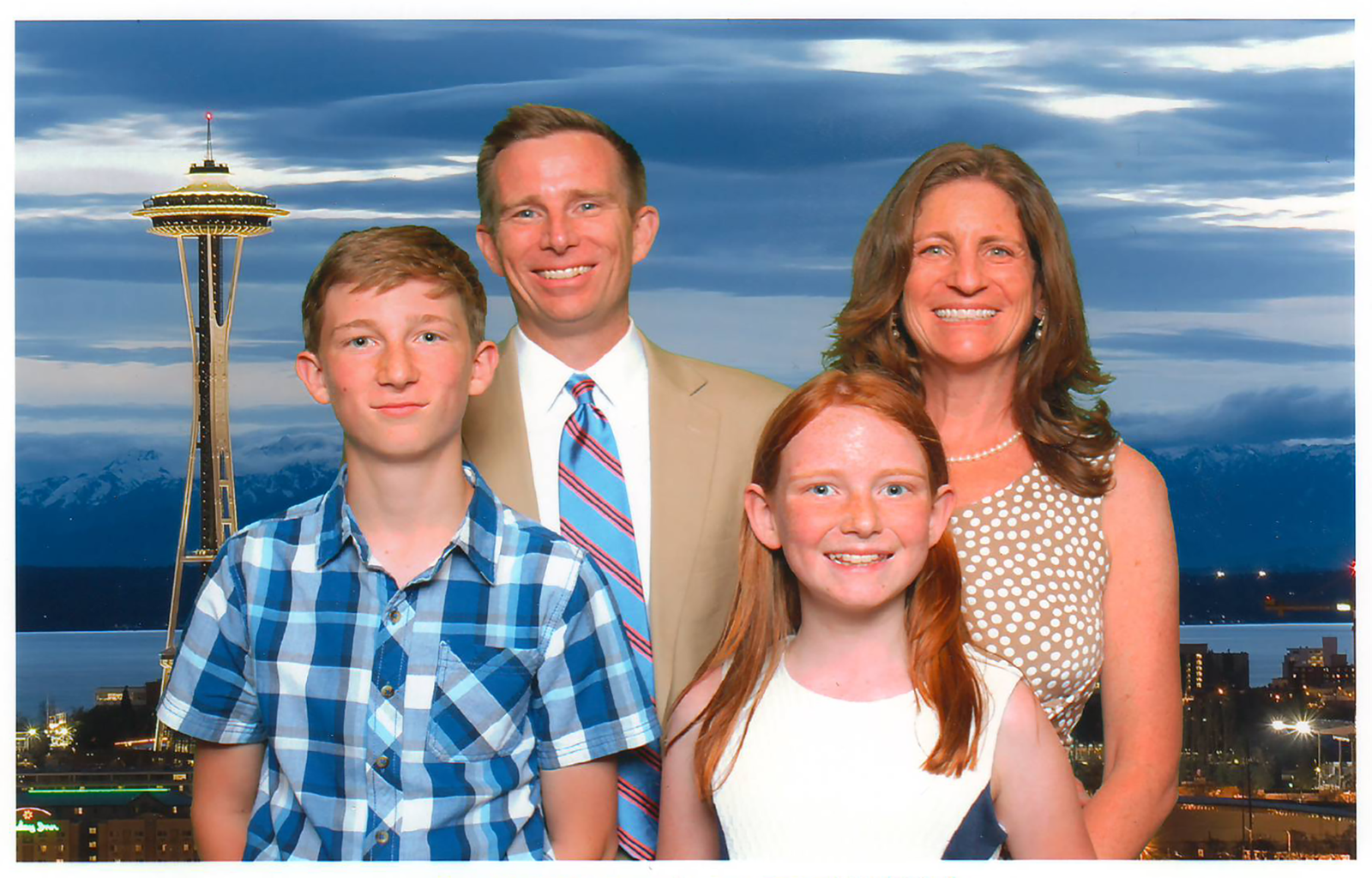I grew up in Southern California, in the Pacific Palisades, which is the Los Angeles area. My mom was the daughter of Holocaust survivors, and I the granddaughter and great-granddaughter of Holocaust survivors. My grandparents, who had very heavy accents, and my great-grandmother, were important influences on my life. My great-grandmother was the most positive, loving person, who didn’t hold a grudge against anyone, just loved her family and had a number on her arm. She was so glad to be reunited with her family. When my great-grandmother went into the concentration camps, my grandparents escaped and ended up through a very circuitous route in Kenya. My grandfather was an architect and built the synagogue in Nairobi, which still stands today. They had very strong connections there. My grandparents had some survivor’s guilt and were amazingly active Jews in Santa Barbara when they moved to the United States. Probably my favorite story about them is from when they became US citizens. They were in their seventies and it was the first time that they had ever been a citizen of a country where they could vote. That was super powerful. My grandmother, who died at 94, never missed an election. She could talk you under the table on what was going on locally, nationally, internationally; she read international newspapers all the time. It was ingrained in me not to take that vote for granted. My mom was born and raised in Kenya. It was interesting, growing up with an international mom and a politically active dad. He was roommates with Michael Dukakis and Senator Carl Levin. Community involvement and standing up for immigrants and those facing discrimination were a big part of our lives. I went to college in St. Louis and then grad school in New York. I lived in New York City for six years and ended up coming out to Seattle in 2000 for work and for politics. And I never left. Seattle is home.
I talk about it a lot when people say, "Why are you in public service?” I think a lot of things that we read during Yom Kippur, they say "For the sins that we have committed against you" by being xenophobic, by not taking care of the poor, by not looking out for the widow and the orphan. Those different components for some reason just really resonate with me, that we are just constantly looking or told or encouraged to look out for those who are less fortunate than us. I think that that’s something that not everybody has as a core value. So that empathy, for me, it’s something that resonates.
I was an education major in college and I really wanted to be a teacher. Then I spent a summer in Washington D.C. doing education policy, and I started getting more into the policy area and understanding more about how urban policy impacts education policy. When I went to Columbia for grad school, I got my master’s in public policy and administration and did a lot of studying in urban policy and gender policy, as well as accounting and microeconomics. After graduate school, I could see myself either going down the route of working on empowerment zones, which are very focused on urban cities and revitalizing cities, or I could follow my women’s and Jewish passion route, which is what I ended up doing. I went to work for National Hadassah right out of grad school, so I was there in their American Affairs/Domestic Policy Department and working on women’s health issues and voter registration. In 1994 there was the million-mom march for gun safety. Reproductive health issues, again women’s health issues, pro-Israel issue… it was kind of a perfect place for me to land.
I was at Mercer Island High School for the National School Walkout. There were over 400 kids that came out into the amphitheater and they invited me to speak. They read the names of all the students killed in Parkland, Florida and they recounted some of the school shootings since then. They read poems and talked about their fear of guns and how much they hate assault weapons. It was such a powerful moment, really inspiring. I told them that their generation has the power to influence the way America looks at gun culture and implored them to not let America think that brandishing a gun makes you look brave and cool. I told them to ask friends and parents to lock up their guns and to never let their voices be diminished and to always vote. I think those were probably the biggest messages.
Gun control in the legislature
We banned bump stocks in this legislative session, which was a small but important step. It’s difficult to pass other gun laws right now. The Democrats have a couple seat majority in both the House and in the Senate, and we have some rural and conservative Democrats who don’t believe in stricter gun laws . It’s kind of on the border whether a bill would pass. This past session was a short session, and so we had a lot of other things to do. Opponents of gun control usually get pretty ramped up on the floor and they’ll kind of filibuster, talk for hours. So, we can only selectively run those bills, or everything else doesn’t have a chance to pass. I had a bill to allow the Washington State Patrol the option to destroy weapons that have been forfeited from a crime scene or in other ways, just like every other law enforcement agency already has across the State. We didn’t even get a vote on that.
Working with colleagues with opposing views
It’s important to recognize that people are multi-dimensional. I would say the Democrats against gun control in the House of Representatives right now, they’re amazing on so many other issues... on reproductive choice, on labor issues, on the environment, on other things that are important as well. I think we need bigger majorities so that people have the flexibility to have a different opinion and not just have group think on every issue. I think we need to be flexible in that way.
The Jewish Federation shooting
I was involved with the Jewish Federation of Greater Seattle in 2006 when there was the shooting there. So, gun issues are immensely personal and important to me, and I feel like I can bring an interesting perspective in that way. With the Washington State Patrol bill that I had to allow them to destroy forfeited weapons, the opponents are concerned that those guns could be sold and then that money could be used to buy other equipment or things for the law enforcement agencies. But to me, I think… they might get $500 max per weapon. If one of those weapons is used in the crime, you have the expenses of 9-1-1, the SWAT team, the police and first responders who come, hospital emergency rooms, surgeons, nurses. You’ve got criminal justice costs, jail costs, lost wages, and workers’ compensation. You have mental anguish and therapy for dozens of people. Not to mention if a life is lost. The cost of a single gun crime versus the cost of one gun is completely unbalanced. So that’s how I try and talk about it. If they’re going to argue against it because of money, I will argue right back about money. In the case of the Jewish Federation, billions of dollars were added to Homeland Security for religious institutions because of that shooting. It was a nationally devastating and financially ruinous incident, not to mention the personal and the community fear that it created, and the anguish and the tragic loss of lives and of health for so many people.
It’s hard. When Trump was elected, so many people were depressed, as I was. People kept saying, "Thank you for your service," and I have to say being in public service and being an elected official was probably my saving grace, because I felt like I was actively doing something to counter some of the bad policies and bad kind of gestalt there was in the country. I was actively able to be working towards change, and that kept me sane. Being able to be part of the solution gives me some optimism.
Ann Richards, the former governor of Texas, was somebody I always talked about. As a young girl, seeing this vivacious, dynamic woman in Texas as a Democrat was really inspirational. Closer to home and more recently, Representative Judy Clibborn and Representative Ruth Kagi are two state representatives who I look up to. People call Ruth the “Mother of the State’s children.” Ruth Kagi focused on early learning issues and has been an amazing role model. Representative Judy Clibborn’s bipartisan work and her success through relationships has been very instrumental in how I’ve been developing my policy work. Working in a bipartisan manner usually leads to better policy and better results and more long-term buy-in. She’s amazing.
Equal pay and the #MeToo movement
I would say the biggest accomplishment and the thing most important to me this year was passing my equal pay legislation. It’s taken about four years for this bill, and it’s taken 75 years since we’ve passed any equal pay legislation in Washington State. So, it was about time. The first few years were convincing people that we needed to address equal pay and building support, and then getting down to the brass tacks of making sure the words were all right and working with business and women’s groups and labor groups, to get it to a point where not only was it good messaging and a good goal, but good policy. That was a highlight of my career.
The policy issue that we worked on around equal pay was trying to reduce pay secrecy. As we lift the shroud of silence around sexual harassment, so must we lift the secrecy around our wages. There’s a clear connection between the two as well. Opponents of equal pay argue that women just need to negotiate better. Are they supposed to negotiate better with their boss who is sexually harassing them? Or who is sexually harassing other women, or who retaliates against employees for speaking up? Let’s not put the blame on the victim. It’s about that person’s actions, not about the woman reporting it. I think back to Anita Hill. She must be proud that she stood up, but talk about taking the punches for women for decades before people would be willing to listen to what she had to say!
Two years ago, my daughter came down and testified on the equal pay bill. She could not wait. She wrote out her remarks, practiced and studied them. I did not encourage her or suggest that she do that. I had to drive home at 10:00pm one night, pick her up, drive back down to Olympia, stay over, get up at 7:00am to get to the committee with her to testify. She was just amazing; she has that fire in her belly. And I think my son wants to go into political science. Sometimes around the house he calls me ‘Representative Senn’ instead of mom. It is kind of funny. But yeah if they want to do that I would be thrilled. And I should mention that my cousin, Deborah Senn, was the Insurance Commissioner for the State of Washington. I moved out here to work on her U.S. Senate campaign in 2000, and my husband got a job at Amazon, so we both came out for that. She was a good influence as well.
The other major issue that I worked on is children’s mental health, which was not on the radar for Washington State until recently. Each time I would bring up children’s mental health issues, it was kind of like “In 2020 we’re integrating mental and physical health, so we’ll just deal with it then.” And I said, “No, our kids can’t wait.” Representative Ruth Kagi, in one of her pieces of legislation, got a component in there to put together a work group to look at children’s mental health issues. I became chair of that work group and we looked at children’s mental health from the viewpoints of early learning, K-12, and healthcare, really looking at mental health issues around where the kids are, not where our systems are. I think of mental health as a healthcare issue, but if our kids are in preschool or in regular school during the day, that’s the place that we need to identify it and hopefully get them a little bit of help. Over the past few years, we passed legislation that looks at children’s mental health from the point of view of early learning, K-12 and healthcare and making different changes in those systems to get to kids. When you have trauma or mental illness or some other acute issue, we want to address that right away, so that it doesn’t become a long-term adult mental health issue. It’s been great to start looking at these issues and trying to reduce the need for spending in mental health for adults by focusing on prevention.
I’m not closing anything off, but I am really enjoying where I am now. I was a Mercer Island City Councilwoman before I was a legislator and I really enjoyed that. It was some of my urban policy roots looking at infrastructure and making sure we had a sound budget and dealing with those kind of components, but I recognize what I miss was working on things like education, gun violence, reproductive rights, some of those bigger issues that weren’t as relevant on the city level as they are on the state level. So I’ve really been enjoying that shift. I’m on the education committee, I’m on early learning and human services so a lot of those Jewish values of public education, of human services I get to act on them so again I’m loving where I am now.

